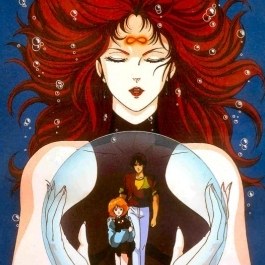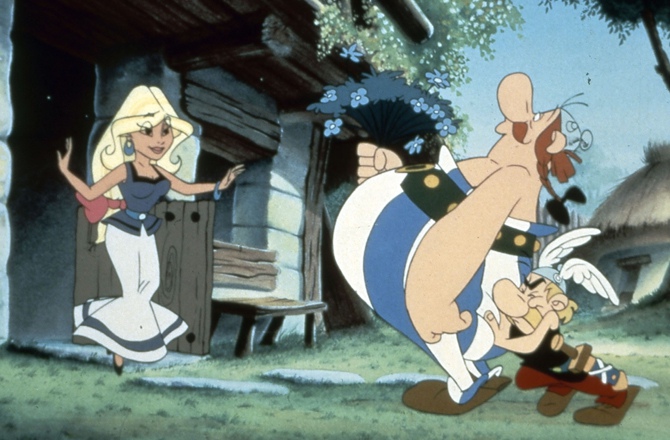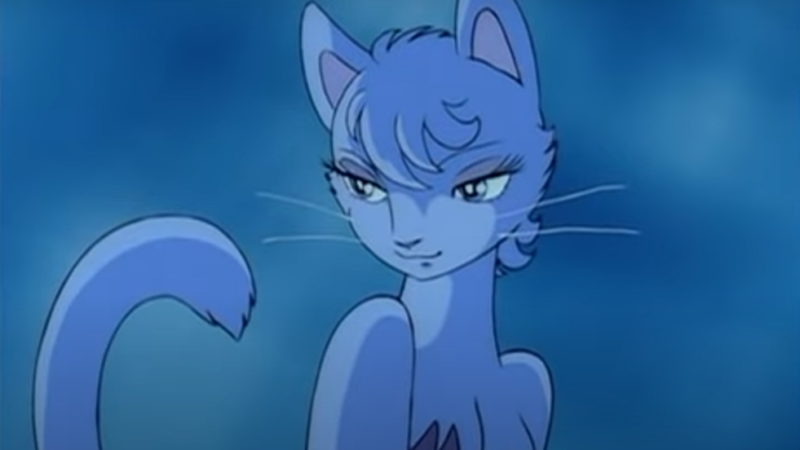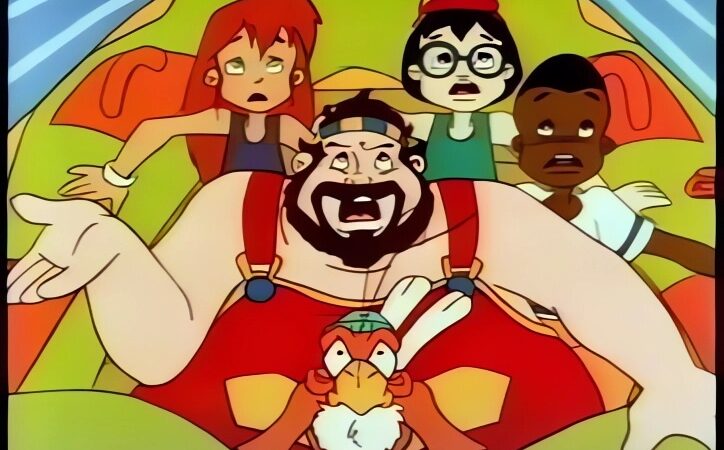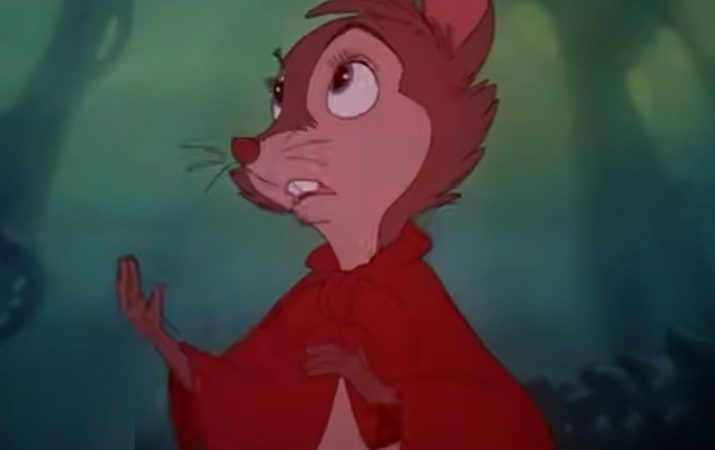Fievel lands in America (An American Tail) the 1986 animated film
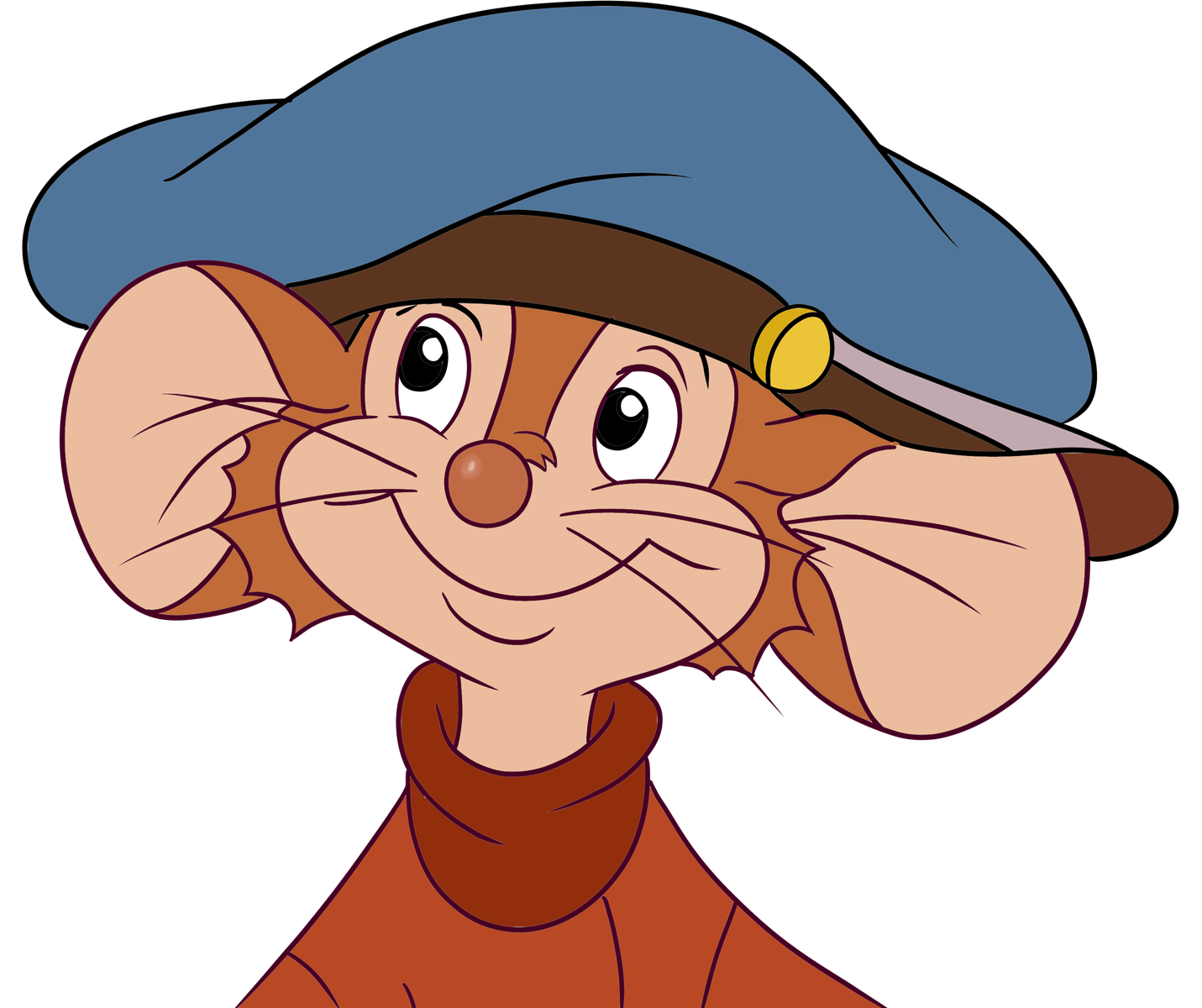
Fievel sbarca in America (An American Tail) is a 1986 American animated film directed by Don Bluth from a screenplay by Judy Freudberg and Tony Geiss and a story by David Kirschner, Freudberg and Geiss. The film features the original voices of Phillip Glasser, John Finnegan, Amy Green, Nehemiah Persoff, Dom DeLuise and Christopher Plummer. It tells the story of Fievel Toposkovich (Mousekewitz) and his family as they emigrate from Russia to the United States for freedom. However, he gets lost and must find a way to reunite with them.

The film was released in the United States on November 21, 1986 by Universal Pictures, four months after the release of Basil the detective (The Great Mouse Detective) of Disney. It received mixed to positive reviews and was a box office success, making it the highest-grossing non-Disney animated film of the time. Its success, along with that of director Bluth's In Search of the Enchanted Valley (The Land Before Time) and Disney's Who Framed Roger Rabbit (both 1988), and Bluth's departure from their collaboration, prompted executive producer Steven Spielberg to found his own animation studio, Amblimation, in London, England. The film spawned a franchise that included a sequel, Fievel conquista il West (An American Tail: Fievel Goes West) (1991); a CBS TV series, Fievel's American Tails (1992); and two further direct-to-video sequels, Fievel - The treasure of the island of Manhattan (An American Tail: The Treasure of Manhattan Island) (1998) and Fievel - The Mystery of the Night Monster (An American Tail: The Mystery of the Night Monster) (1999).
History



In Shostka, Russia, in 1885, the Toposkovichs (in original Mousekewitz), a family of Russian Jewish mice living with a human family named Toposkovich (Mousekewitz), are celebrating Hanukkah in which dad gives a hat to his 7-year-old son. years, Fievel, and tells him about the United States, a country where he believes there are no cats. The celebration is interrupted when a battery of Cossacks cross the village square in an anti-Jewish arson and their cats attack the village rats. Because of this, Toposkovich's (Mousekewitz) house is destroyed, while Fievel escapes from the cats. They flee the village in search of a better life.
In Hamburg, Germany, the Toposkovichs (Mousekewitz) board a steamer bound for New York City. All the rats on board are delighted with the process of going to America because "there are no cats" there. During a storm on their journey, Fievel suddenly finds himself separated from his family and dragged into the sea. Thinking that he is dead, they travel to town as planned, even though they get depressed by the loss of him.



However, Fievel floats to New York City in a bottle and, after a pep talk from a French pigeon named Henri, embarks on a search to find his family. He is attacked by scammer Lucky LoRatto (original Warren T. Rat), who gains his trust and then sells him to an exploiting factory. He escapes with Tony Toponi, an intelligent Italian mouse, and they join Bridget, an Irish mouse who tries to wake up his fellow mice to fight cats. When a gang of their own called the Mott Street Maulers attacks a rat market, the immigrant mice discover that the stories of a cat-free country are not true.
Bridget takes Fievel and Tony to find Johnny Onesto (Honest John), an alcoholic politician who knows the voting rats of the city. However, she cannot help Fievel search for his family, as they have not yet registered to vote. Meanwhile, her older sister, Tanya, tells her parents sad about her, that she has the feeling that he is still alive, but they tell her to leave those feelings alone because, it is not possible that Fievel could still be alive. .



Led by the rich and powerful Gussie Topolonia (Gussie Mausheimer), the mice hold a demonstration to decide what to do with the cats. Warren is extorting them all for protection he never provides. Nobody knows what to do about it until Fievel whispers a plan to Gussie. Although her family also partakes of her, they do well in the back of the audience and are unable to recognize Fievel on stage with her.
The mice take control of an abandoned museum on the Chelsea Piers and start building their own floor. On launch day, Fievel gets lost and stumbles upon Warren's lair. He discovers that he is actually a cat in disguise and the leader of the Maulers. They capture and imprison Fievel, but his guard is a reluctant member of the gang, a silly and cuddly long-haired vegetarian orange tabby cat named Tiger, who befriends him and frees him.
Fievel rushes back to the dock with the cats chasing him when Gussie orders the mice to release the secret weapon. A huge mechanical mouse, inspired by the bedtime stories Dad told Fievel about the "Giant Mouse of Minsk", chases the cats along the dock and into the water. A wandering steamer bound for Hong Kong picks them up on anchor and carries them away. However, a stack of leaking kerosene cans caused a torch lying on the ground to ignite the dock, and the mice are forced to flee when human FDNY arrives to extinguish it.
During the fire, Fievel is again separated from his family and ends up in an orphanage. Dad and Tanya hear Bridget and Tony calling Fievel, but Dad is sure there is another "Fievel" somewhere until Mom finds his hat.
Together with Gussie, Tiger allows them to ride him in the last effort to find Fievel and they are successful. The journey ends with Henri leading everyone to see his just completed project: the Statue of Liberty, which seems to smile and wink at Fievel and Tanya, and the new life of Toposkovich (Mousekewitz) begins in the United States.
Characters
fievel
The main protagonist is the only son of seven years old father and mother Toposkovich (Mousekewitz). Fievel, a lively, bold but naive Russian Jewish mouse, becomes a frightened child when separated from his family. The strength and encouragement of his new American friends from Henri to Tony and Bridget give him the fortitude to achieve his goal of reuniting with his family while he starts a new life in America. Fievel was the same name as Steven Spielberg's grandfather, whose immigrant stories influenced the film (the credits spell his name as “Fievel”). However, many English-language writers have come to adopt the Fievel spelling, especially for this character; this was the spelling that was used on the movie poster, in promotional materials and in link products. His surname is a variation of the Hebrew-Russian surname “Moskowitz”, the name of the human occupants of the house where his family lives at the beginning of the film.
Lucky LoRatto (Warren T. Rat)
A little cat that disguises itself as a mouse. Leader of the Mott Street Maulers, a cat-only gang that terrorizes New York City's mice. Connective and conspiratorial, at one point he misleads the naive Fievel. Later, he gets the just punishment when Fievel finds out and later exposes him like a cat to the rat community. He is accompanied everywhere by his accountant Digit, a small cockroach with a British accent.
Tanya Toposkovich (Tanya Mousekewitz)
Fievel's 8-year-old sister, whom she adores. Optimistic and cheerful, less daring but more obedient than her brother, she alone believes (correctly) that he survived the journey to the United States. She is given the American name "Tillie" at the immigration point in Castle Garden.
Papa Toposkovich
The head of the Toposkovich family who plays the violin and tells stories to his children.
Erica Yohn as Mama Toposkovich, Fievel's mother. Contrasting dad's dreamy idealism, she is a balanced pragmatic mom, as well as being more strict with their offspring than he is. She is also afraid of flying.
Tony Toponi
A teenage street rat of Italian origin. His "tough" attitude fits his New York environment. He gets along well with Fievel, as the surrogate older brother of the younger mouse, whom he calls "Philly". In one subplot, he falls in love with Bridget.
Tiger
The most physically imposing cat of the Mott Street Maulers, serving as a guardian… and often as the weight of their cruel jokes. This bushy tailed orange long haired tabby stands 3 feet tall on its hind legs. Although not particularly intelligent, Tiger is very friendly and his warm nature makes him dear to mice and birds. He is mostly vegetarian, apart from the occasional piece of fish. He likes card games like poker and gin rummy, despite the fact that he is terrible to them. Tiger's voice also helps him stand out; he sings bass and baritone.
Henri
A pigeon of French origin, which oversees the construction of the Statue of Liberty.
Bridget, one attractive and elegant pussy of Irish origin and the other significant one of Tony. Her parents were killed and devoured by the Mott Street Maulers, making her an advocate in speaking out against cats. Kind, passionate but calm, she acts as Fievel's surrogate older sister.
Honest John, a local rat politician of Irish descent who knows all voting rats in New York City. A drunkard chasing ambulances, he takes advantage of voter concerns to increase his political prestige. John is a caricature of XNUMXth century Tammany Hall politicians.
Gussie Topolonia (Gussie Mausheimer), a German-born mouse considered the richest in New York City, who gathers mice to fight cats.
Digit, Warren's British cockroach accountant who loves to count money but is plagued with frequent electrical charges in his antennae whenever he gets nervous or excited.
Hal Smith as Moe, a fat rat who runs the local pimp shop. Fievel is sold to him by Warren.
Jake, Warren's burly aide-de-camp. Among the Mott Street Maulers, he alone enjoys listening to his leader's violin music. Jake captures Fievel after a chase through the sewers. After Tiger takes pity on Fievel and frees him, Jake and his fellow Maulers chase the young mouse to Chelsea Pier… only to face the "Giant Mouse of Minsk".
Production
Production began in December 1984 as a collaboration between Spielberg, Bluth and Universal, based on a concept by David Kirschner. Originally, the idea was conceived as a television special, but Spielberg felt it had potential as a film. Spielberg had asked Bluth to "do something nice to me like you did in NIMH ... make it nice". In a 1985 interview, he described his role in the production as “the first in the area of history, inventing incidents for the script, and now it consists of looking at, every three weeks or a month, the storyboards Bluth sends me and create my Comments ". Bluth later commented that “Steven has by no means dominated Tail's creative growth. There is an equal share of both in the photo ”. However, this was his first animated film and it took him some time to learn that adding a two-minute scene would take dozens of people months of work. In 1985 he declared: "At this point I'm enlightened, but I still can't believe it's that complicated." It was Universal Pictures' first animated feature film since Pinocchio in Outer Space in 1965 and the first animated film they co-produced.
Originally, the concept consisted of an all-animal world, like Disney's Robin Hood, but Bluth suggested presenting an existing animal world as a society hidden from the human world, like his NIMH and Disney's The Rescuers. After seeing The Rescuers, Spielberg agreed. Emmy Award-winning writers Judy Freudberg and Tony Geiss were involved to expand the script. When the initial script was completed, it was extremely long and heavily edited before its final release. Bluth felt uncomfortable with the main character's name, thinking “Fievel” sounded too foreign and felt the audience wouldn't remember it. Spielberg disagreed. The character is named after his maternal grandfather, Philip Posner, whose Yiddish name was Fievel. The scene of pressing against a window to look into a classroom full of American "school mice" is based on a story Spielberg remembered about his grandfather, who told him that Jews could only hear lectures through open windows while they were sitting outside in the snow. [9] Eventually Spielberg won, although a compromise was reached when Tony referred to Fievel as "Filly". Spielberg also cut out some material he thought was too intense for the kids, including a scene Bluth was developing revolving around wave monsters while the family was out at sea.
Awards received
1987 - Academy Award
Best Song Nomination (Somewhere Out There) to James Horner, Barry Mann and Cynthia Weil
1987 - Golden Globe
Nomination Best Original Song (Somewhere Out There) to James Horner, Barry Mann and Cynthia Weil
1987 - Saturn Award
Nomination Best Fantasy Film
Best Score Nomination for James Horner
1988 - Grammy Award
Best Song (Somewhere Out There) to James Horner, Barry Mann and Cynthia Weil
Song of the Year (Somewhere Out There) to James Horner, Barry Mann, Cynthia Weil, Linda Ronstadt and James Ingram
Nomination Best Album to James Horner
Nomination for Best Pop Vocal Performance by Couple or Couple (Somewhere Out There) to Linda Ronstadt and James Ingram
1988 - ASCAP Award
Best Song (Somehwere Out There) to James Horner, Barry Mann and Cynthia Weil
1987 - BMI Film & TV Award
Best Song (Somewhere Out There) to James Horner, Barry Mann and Cynthia Weil
1988 - Young Artist Awards
Best animated film
Best group voiceover to Phillip Glasser and Amy Green
In the opening credits, in the list of original voice actors, the name of Fievel's character is erroneously referred to as "Feivel".
The song that Fievel and Tanya sing, entitled "Luna bella", is the cover of the song by Linda Ronstadt and James Ingram Somewhere Out There, used in the original version of the cartoon.
When Tigre asks Fievel what his favorite book is, the little mouse replies: The Karatopov Brothers, an obvious parody of The Karamazov Brothers.
Johnny Onesto's original name is Honest John, the same as the Fox in the original edition of the Disney classic Pinocchio.
Technical data
Original title An American Tail
Original language English
Country of Production United States of America
Year 1986
Duration 80 min
Relationship 1,37:1
Gender animation, dramatic, adventure, musical
Regia Don Bluth
Subject David Kirschner, Judy Freudberg, Tony Geiss
Film script Judy Freudberg, Tony Geiss
Producer Don Bluth, John Pomeroy, Gary Goldman
Executive producer Steven Spielberg, David Kirschner, Kathleen Kennedy, Frank Marshall
Production house Amblin Entertainment, Sullivan Bluth Studios
Distribution in Italian United International Pictures
Editor Dan Molina
Special effects Dorse A. Lanpher, Diann Landau, Tom Hush, Jeff Howard
Music James Horner
scenography Larry Leker, Mark Swan, Mark Swanson
Storyboard Don Bluth
Entertainers John Pomeroy, Dan Kuenster, Linda Miller, Heidi Guedel, Ralph Zondag, Dick Zondag, Dave Spafford, David Molina, T. Daniel Hofstedt
Wallpapers Don Moore, William Lorencz, David Goetz, Barry Atkinson, Richard Bentham
Original voice actors
Phillip GlasserFievel Toposkovich
Amy Green: Tanya Toposkovich (dialogues)
Betsy Cathcart: Tanya Toposkovich (singing)
Nehemiah Persoff: Pope Toposkovich
Erica Yohn as Mama Toposkovich
Dom DeLuise: Tiger
John FinneganLucky LoRatto
Madeline Kahn as Gussie Topolonia
Pat Musick: Tony Toponi
Cathianne BloreBridget
Christopher PlummerHenri
Neil Ross: Johnny Honest
Will Ryan: Digit
Hal SmithMech
Johnny Guarnieri: Italian mouse
Warren Hays: Irish mouse
Italian voice actors
Alessandro Tiberi: Fievel Toposkovich
Rossella Acerbo as Tanya Toposkovich
Renzo Palmer: Pope Toposkovich
Bianca Toso as Mama Toposkovich
Leo Gullotta: Tiger
Massimo Daiuto: Lucky LoRatto
Isa Bellini as Gussie Topolonia
Loris Loddi as Tony Toponi
Ilaria StagniBridget
Jacques StanyHenri
Max Turilli: Johnny Honest
Mino Caprio: Digit
Alvise BattainMec

